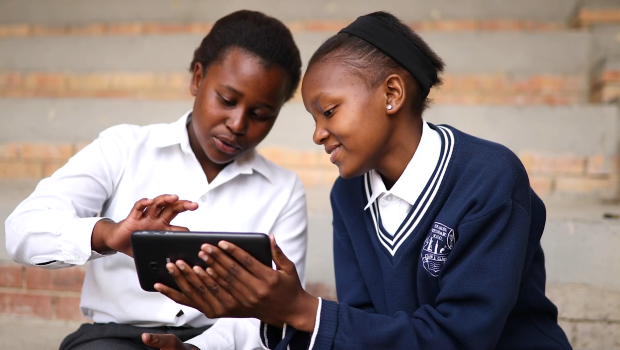Telecom
95% of the World Now Covered by Mobile Broadband Networks – GSMA Research

Ensuring people are able to use mobile internet, rather than focusing purely on network coverage, is the key to driving digital inclusion for 3.2 billion people worldwide, according to statistics released by the GSMA yesterday.

The organisation’s annual State of Mobile Internet Connectivity Report shows that 95% of the global population now lives in areas served by mobile broadband connectivity, and that enabled by that coverage footprint, 55% of the world’s population is now connected to mobile internet. Providing coverage to the remaining 5% (the ‘coverage gap’) remains an important challenge.
However, the bigger issue is the 3.2 billion people, equivalent to 40% of the world’s population, who are covered by a mobile broadband network but face barriers that prevent them from getting online (the ‘usage gap’). These include:
– A lack of literacy and digital skills
– Affordability (particularly handset affordability)
– Access to relevant content and services
– Safety and security concerns and access
The impacts of these challenges have far-reaching consequences, especially in low- and middle-income countries (LMICs) where mobile is the primary – and in many cases only – form of internet access.
94% of the world’s ‘unconnected’ population – who are more likely to be poor, living in rural areas and women – live in LMICs.
Lack of internet access holds them back from playing an active role in an increasingly online world, making them less able to cope with the continuing economic and social disruptions caused by the COVID-19 pandemic, climate change, rising energy prices and the cost-of-living crisis.
These barriers also prevent them from being able to access critical information and services such as healthcare, education, e-commerce, financial services and income-generating opportunities.
GSMA Director General, Mats Granryd said “More than 55% of people globally are now benefitting from the transformational power of mobile internet connectivity.
“Mobile operators worldwide have now extended mobile coverage to 95% of the global population, and continue investing every day to increase that footprint. We should celebrate that achievement, but we shouldn’t let it blind us to the even bigger challenge.
“It’s time to make real strides on the journey to reach the 3.2 billion people who are not yet using mobile internet despite living within the footprint of mobile broadband networks.
“We call on governments and organisations worldwide to work alongside the mobile industry and make digital inclusion a genuine priority. Removing barriers to mobile internet adoption will boost economic recovery, improve social mobility and gender equality, and transform the lives of millions worldwide.”
Important trends
Whilst the report highlighted the importance of increased focus on addressing the ‘usage gap’ it also revealed a number of important trends:
- Use of mobile internet is still growing, and driving digital inclusion. By the end of 2021, 4.3 billion people were using mobile internet or 55% of the world’s population, up from 43% in 2017
- Almost 300 million people came online in the past year. Most of the people who started using mobile internet in 2021 came from LMICs where 94% of the unconnected population live. As a result, for the first time half of the population LMICs is now using mobile internet.
- Globally, the coverage gap reduced substantially over the last 7 years. The percentage of people outside the reach of mobile broadband networks fell from 19% in 2015 to 5% at the end of 2021. However, there is no room for complacency: 400 million people worldwide still do not live in an area covered by a mobile broadband network, and progress has slowed since 2018.
While important progress has been achieved in increasing internet adoption and usage, the report, which was funded by the UK Foreign, Commonwealth and Development Office (FCDO) and the Swedish International Development Cooperation Agency (Sida) via the GSMA Mobile for Development Foundation, demonstrates that growth has been unequal and there is a growing digital divide between and within countries.
It concludes that strong collective effort is needed to close the digital divide. This requires informed, targeted action by all stakeholders, including mobile operators, policymakers, international partners and the broader private sector to address the needs of the unconnected and the barriers they face to accessing and using the internet.
Addressing the mobile internet usage gap will be a focus of this year’s Mobile World Congress Africa event in Kigali, Rwanda, which starts next week.
Telecom
MTN Says New N6.98 USSD Charge Won’t Affect Airtime Recharge

Lynda Saint-Nwafor, chief Enterprise business officer, MTN Nigeria, has assured the network subscribers that the new end-user billing system for the use of USSD services will jot affect them.

USSD, otherwise Unstructured Supplementary Service Data codes are commonly used for banking transactions, airtime recharges, and other mobile services.
The telco said that there is no significant impact or change other than the fact that they will now pay the same N6.98 per session (120 seconds) with their airtime instead of direct bank debit.
Saint-Nwafor, said this during a chat with MTN MIP fellows, explaining that the Central Bank of Nigeria (CBN) and the Nigerian Communications Commission (NCC) have ordered telecom operators to ensure that the new billing model resolves trust issues and ensures transparency in the billing process.
“Our regulator insisted that at the end of every month, we are going to be providing history and statistics on the performance of the service across the board”, she explained.
Saint-Nwafor added that the new billing model has standardized messaging across all operators and ensures consistent communication with customers.
“We will take all the error codes and map them into messages that are standardised across the board. So, if you initiate a transaction, you will know if it is failing. And, when the transaction fails, you will know if it is from your bank or the telco,” she explained.
Telecom
Crypto Scam Unmasked: U.S. Recovers Record $225m in Global Fraud Bust

The U.S. government has recovered $225 million in what is now the largest seizure of funds linked to a cryptocurrency investment scam.

In a statement released Wednesday, June 18, the U.S. Attorney’s Office said the recovery followed an extensive investigation by the FBI and the U.S. Secret Service, using blockchain analysis and other forensic tools. The statement did not confirm whether any arrests had been made.
According to the authorities, the stolen funds originated from fraudulent cryptocurrency investment schemes that tricked victims into believing they were making legitimate investments. More than 400 individuals around the world, including dozens in the United States, were reportedly affected.
The operation involved a sophisticated money laundering network that carried out hundreds of thousands of blockchain transactions to obscure the source and ownership of the stolen assets.
“These scams prey on trust, often resulting in extreme financial hardship for the victims,” said Shawn Bradstreet, Special Agent in Charge at the U.S. Secret Service office in San Francisco.
Bradstreet added that U.S. officials hope the recovered funds can eventually be returned to the rightful victims.
Cryptocurrency investment fraud accounted for over $5.8 billion in reported losses in 2024 alone, according to the statement.
Telecom
Nnaemeka Ani Calls on African Techies to Rewrite the Narrative

In a rousing declaration that is electrifying minds across the continent, Hon. Nnaemeka Ani, Special Adviser on ICT to Enugu State Governor, Dr. Peter Mbah, has called for a homegrown digital revolution under the banner “Africa Will Rise: By Code, By Courage, By Us.”

Hon. Nnaemeka Ani
The message, part challenge, part philosophical—seeks to galvanize African innovators to move beyond buzzwords and build technology with impact and legacy in mind.
“Let’s stop building for hype. Let’s start building for legacy,” Ani urged while speaking to ICT journalists over the weekend. “Let’s stop waiting for someone else. Let’s start creating the future—on our own terms.”
At the heart of Ani’s vision is a shift from tech consumerism to tech authorship. With innovation hubs sprouting across cities like Enugu, Lagos, Kigali, Jo’Burg, and Nairobi, and a growing community of developers, engineers, and entrepreneurs determined to solve Africa’s unique challenges, the movement is already taking shape.
Ani emphasized that Africa’s future lies not in flashy apps or international admiration but in persistent, intentional solutions that uplift communities—solutions that digitize public services, bridge rural-urban divides, empower women and youth, and build resilience in food and climate systems.
“We have the talent,” he said. “Now it’s time to harness it—to stop building for likes and start building for lasting impact.”
With support from leaders like Ani and rising momentum in Africa’s tech corridors, it seems that a new chapter is being written—one line of code at a time.

 General News3 days ago
General News3 days agoNASRDA, Galaxy Space Firm Sign MoU on Satellite Connectivity

 Telecom3 days ago
Telecom3 days agoOver 1m Nigerians Reached through MTN Staff’s Digital and Community Outreach

 Telecom3 days ago
Telecom3 days agoMafab Gets 0724 Number Series, Launches Mcom 5G Brand

 News3 days ago
News3 days agoDBN Awards N13m in Grants to Tech Startups

 Telecom3 days ago
Telecom3 days agoNCC to Name, Shame Telecom Infrastructure Vandals

 News3 days ago
News3 days agoFCCPC Shuts France, Belgium, and Italy Visa Centres in Abuja Over Alleged Consumer Rights Violations

 Telecom3 days ago
Telecom3 days agoWSIS Review: Nigerian ICT Leaders Urged to Shape Global Digital Future

 E-Financial3 days ago
E-Financial3 days agoBank Customers Petition CBN over Illegal Deductions, Demand Action




























